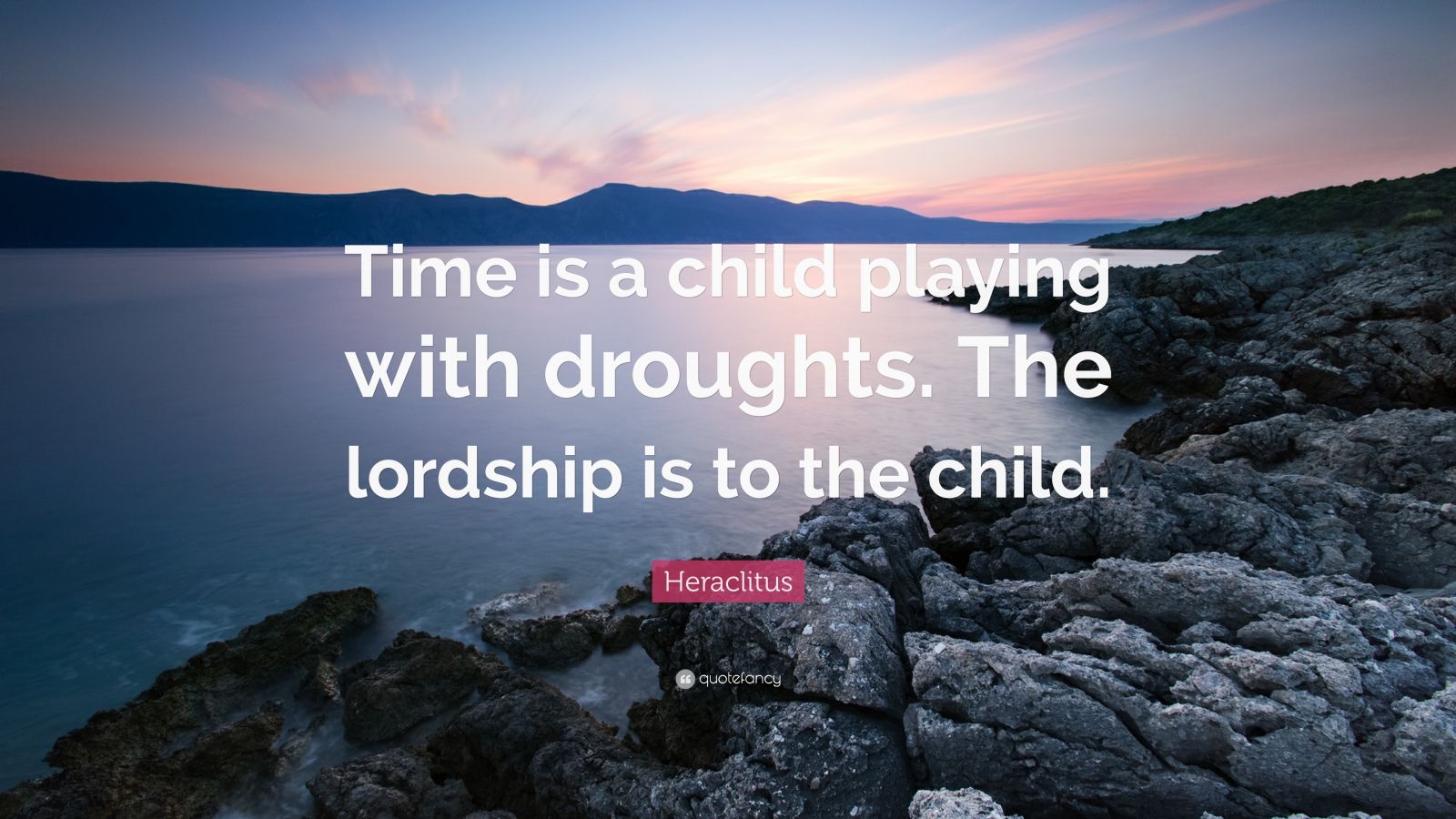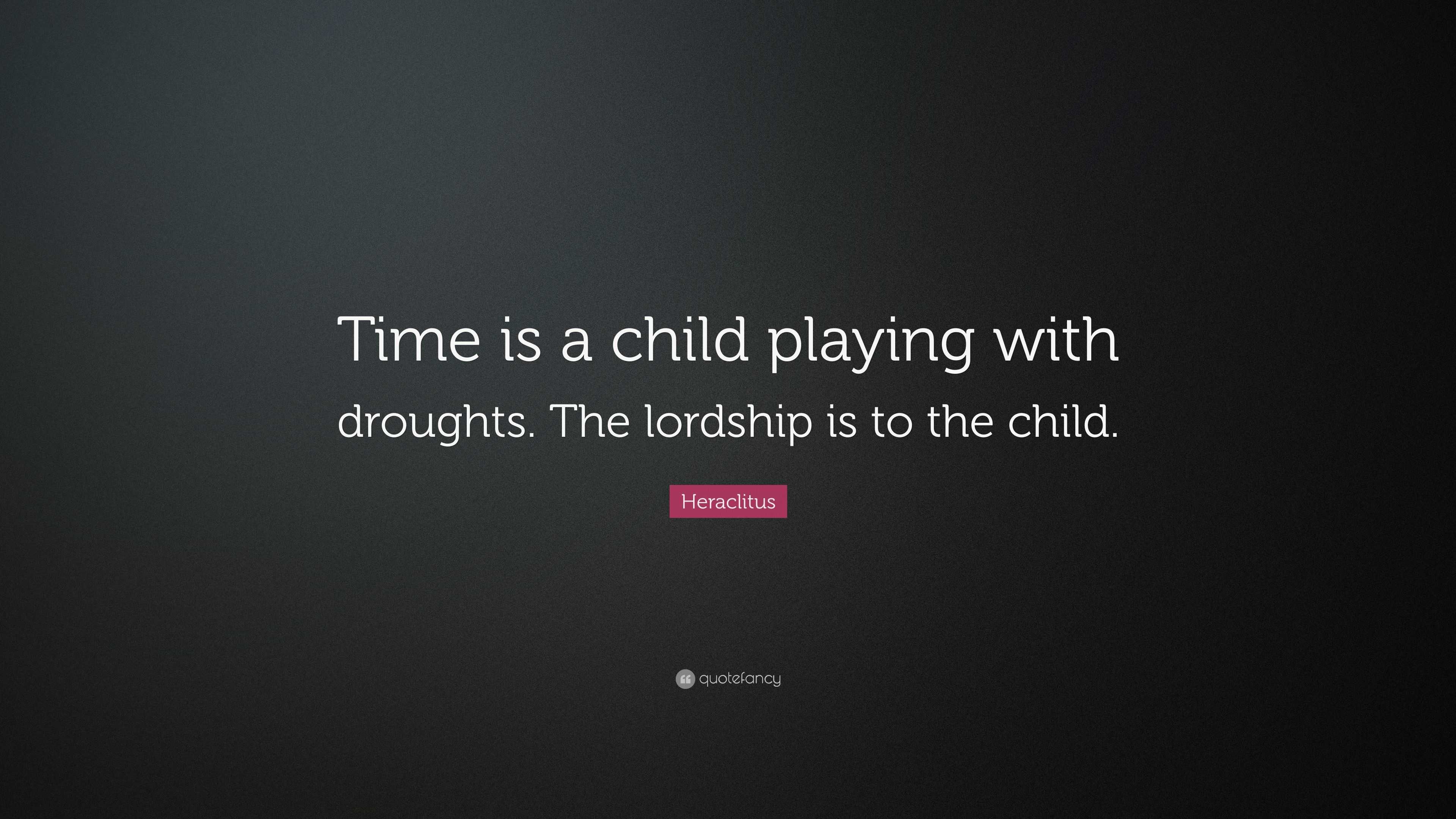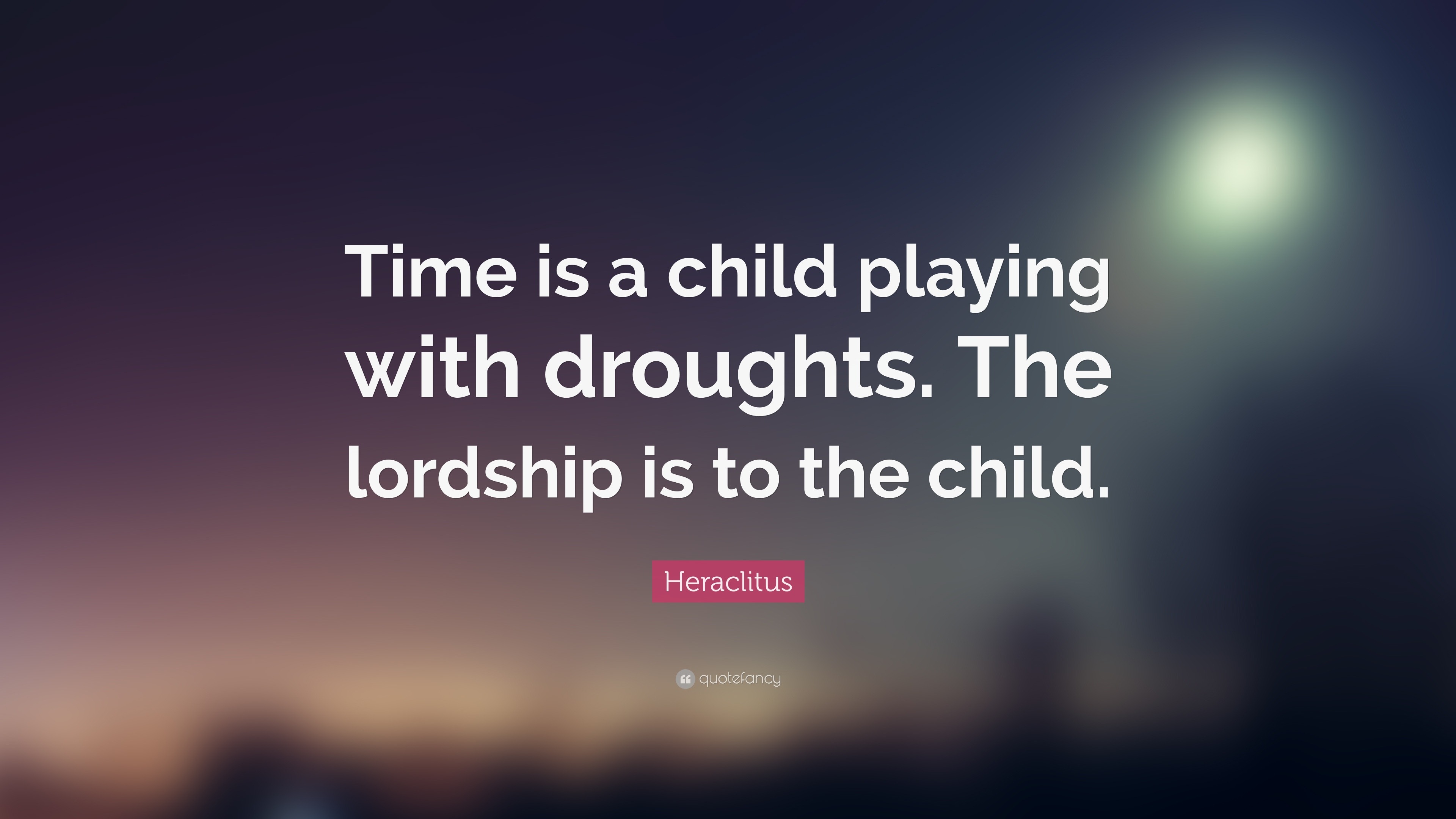Reference




OpenAI's Answer
Heraclitus' phrase "Time is a child playing draughts" is a profound metaphor suggesting several layers of meaning. Here's a breakdown to help understand this enigmatic statement:
Playfulness and Unpredictability
By likening time to a child playing a game (specifically draughts or checkers), Heraclitus emphasizes the playful, unpredictable, and non-linear nature of time. Just as a child might move pieces on a board without strict adherence to rules or predetermined outcomes, the flow of time and events is similarly fluid and spontaneous.
Innocence and Power
The imagery of a child in the metaphor highlights innocence and simplicity. However, it also points to the paradoxical relationship between power and vulnerability. Just as a child can control the outcome of a game, time wields an ultimate power over existence and reality but does so in an innocent and unassuming manner.
Philosophical Context
Heraclitus famously believed in the constant flow and change of the universe, often summarized in the phrase "everything flows" (Panta Rhei). His comparison of time to a child's game conveys this idea of continuous change and emphasizes the intrinsic nature of flux and transformation in life.
Influence on Interpretation
The phrase has been referenced and analyzed by various philosophers, contributing to an evolving interpretation. For instance, the Reddit discussion and various academic sources delve into the playful, yet profound nature of such statements.
Visual Depictions


For further exploration, you can refer to this comprehensive analysis: Khouri7 Blog.
Follow Up
Related
APA ITU PERUNDUNGAN,MENGAPA PERUNDUNGAN TERJADI,SIAPA SAJA YANG BISA MELAKUKAN PERUNDUNGAN,APA EFEK
Young Mind's activation described
What interpretation of Heraclitus' fragment suggests 'the kingdom is a child's'?
Why was September 28 declared the National Day of Awareness and Unity against Child Pornography?